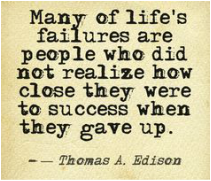I think that people outside of education hear the word "assessment" and immediately think of "a test"; and then they think of a grade; and then they think about its impact on the course grade; and so on and so on--only thinking about grades. Teachers on the other hand are much more interested in learning than they are in grades. Formative assessments can be traditional quizzes or tests, but most of the time they are activities, questions, discussions, games, projects, exit tickets, pre-assessments--lots of strategies that teachers use to identify the level of learning that is occurring within each of their students.
Formative Assessment emphasizes learning and de-emphasizes "the grade". Formative assessment helps students to see the learning target (the goal) and it helps them to be successful in reaching that goal.
So don't think of "tests" when you hear the term "Formative Assessment". Instead think, "I'm glad my child's teacher is concerned about helping my child to learn well."
Another phrase we use a lot is "Assessment for Learning". Using Formative Assessments effectively helps students to learn and to learn well. It isn't a "final exam" that (instead) tests what the student knows after the teaching and learning has already taken place. Formative Assessment is what happens while the learning is taking place. It recognizes that students aren't going to understand everything the first time they hear it. They have to hear it and try it and make mistakes and try again and make more mistakes and learn from these mistakes and try it again...and eventually they get it.
Mistakes are expected, respected, and inspected. This is what Formative Assessments do.















